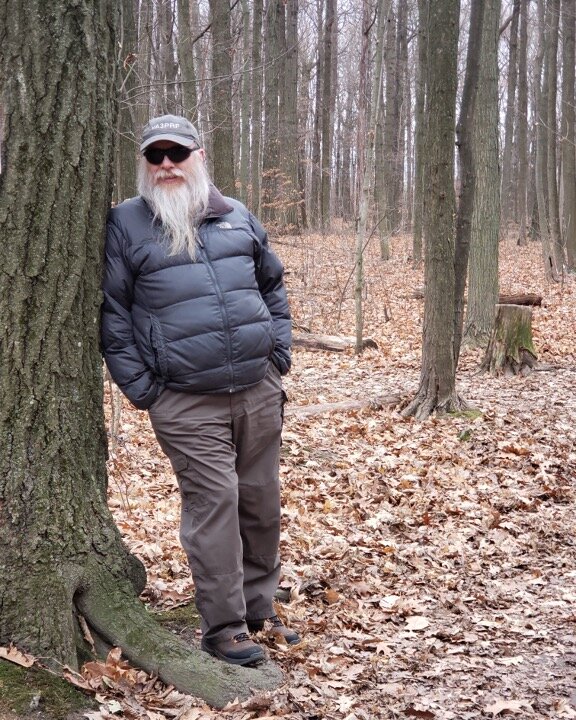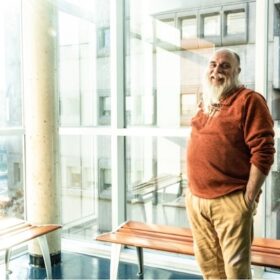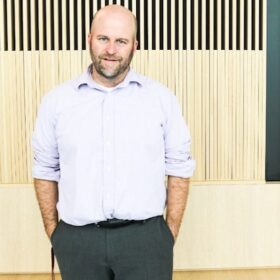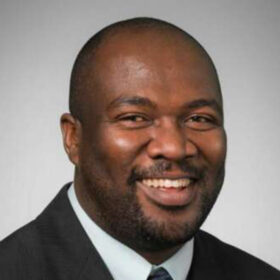
We sat down with Kenneth Owen, Assistant Professor in the Innovation Minor, as he reflects on his time at McMaster, and the journey that led him here. Kenneth has been an integral part of the Innovation Minor, helping our young students gain entrepreneurial expertise to drive innovation and the skills needed for their start-ups.
Why did you decide to become a professor at McMaster?
“It is easier to explain why I became an instructor than explain why at McMaster. Because it is easy to answer – McMaster is a brilliant school.
I could not imagine a better place to be. I did not think I would have been seeking out teaching here, because I did not think in my modesty that I would be good enough to teach here. But as luck had it, I had an opportunity that helped me grow, and I have been successful.
He gained a lot of his knowledge and expertise in starting one of Canada’s first internet service providers. Along this path, he did a lot of consulting with small businesses that were trying to become internet entities.
“After my consulting days, I wanted to try and make lives better for other people by giving back to a community that served me well. I did well with my company and when I retired, I went back to school as an adult learner and got my master’s at Lakehead University, and that led me to my life of teaching.”
What is one of your favourite memories from instructing here at McMaster?
“I can be meaningful here, but I am also thinking about all the free pizza,” Kenneth says jokingly.
“I have a lot of memorable moments here at McMaster University, but my favourites are those, ‘aha’ moments, when a student lights up in a classroom and says, “wait a minute, do you mean…” and demonstrates that they have fully engaged the content and material.
Even better, they have changed themselves a little bit. At the age that we have students starting university, they are very much still play-doh to be moulded, and we have a responsibility to our society to give them every chance to be successful.
So, when I see that moment of success a student has, I am selfish, and I internally take pride that I contributed to that and what they have accomplished.”
Tell us about an experience you have had in the field that you will always remember.
As a young entrepreneur, Kenneth shares his journey starting his own company at 23 years old and managing 25 employees on his own.
“It was horrible, terrifying, if I could give myself one piece of advice looking back, it would be, do not do it, but everything that I am today is a result of all those experiences.
At that point in time, running an internet service provider was like printing money, and you could not make an error because the money was flowing in too fast, but that does not mean I was a good businessperson – I was not.
I did not understand or see the big picture. When you see those big pictures appearing in front of you, you start to see the whole picture, you are not just one little cog in an anonymous wheel. It is very empowering.
I did not have an ‘aha’ moment in my career, I had many ‘that is interesting’ moments, and those are moments that lead me to innovations and change, like starting up an internet company when nobody knew what the internet was in 1992 or building software.
In my teaching career, my ‘aha’ moment came during my undergraduate degree, when I could not learn, did not like learning, and did not go to class because I was bored. I did not feel like anything was relevant, it was demotivating me because I did not see why I was there.
If I did not have that average experience, I would never think to myself, ‘my God, I never want to be that guy,’ you know, so I think hard about what I can do to show the value of what I am teaching to my students. I have an obligation to our students, their parents, and society.“
Most of your students have described you as an inspirational professor; what stories have you told in the classroom that humanizes the workforce?
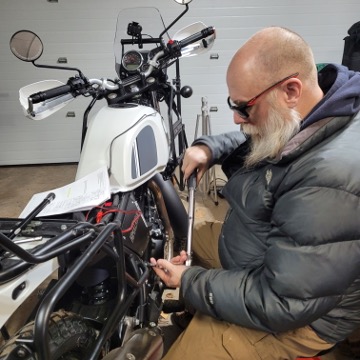
“I do not try to hide anything about who I am, I show up in my motorcycle gear because that is how I got to work that day.
I try to be genuine with them, but part of that is not being perfect and telling them when I make a mistake. I am willing to listen to people tell me when I am making mistakes because you get people engaged that way and make it their course just as much as it is mine.”
Kenneth also makes a point to tell his students about mistakes he made when he was younger, he says, “normally you would want to tell them about the remarkable things you did when you were younger, but as I said earlier, there was no ‘aha’ moment for me. It was challenging work. I had many sleepless and tearful nights figuring out how to be better, more successful, and protect my employees. So, telling the students stories about what made it hard, makes them realize that you are human, and it is okay to have those emotions and feelings.”
Kenneth also enjoys coming to his classes early and speaking with the students to get to know them better.
“I do my best to engage with students as much as possible. When I speak with them, I have a sincere interest in what they are telling me, and if they say something that I can use later as a joke to connect them to the class a bit, I call them out, and it makes it fun for everyone! They always wonder who I will tease next but know if you are the one who is getting teased, it is because I think you are smart.”
What led you to your initial career path?
When Kenneth was in his first year of university, he was told he may never walk again. He lost the ability to walk comfortably, had to use a cane, and was in physiotherapy every day for two hours. Kenneth was scared.
“All my life, I was told what I could and could not do, and now I was being told I was not going to be able to do something I valued, which was walking. So, I started to find ways to improve myself. I learned that the barriers put in front of me are the ones I choose to look at, it was then that I learned I could do much more than I thought I could.“
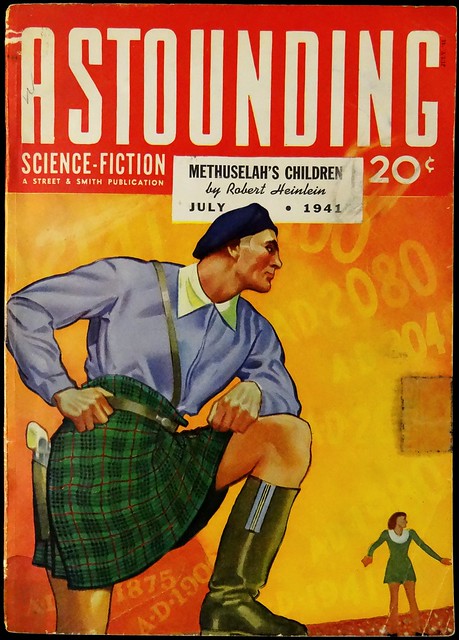
Kenneth attributes his initial career path to having read a book by Robert Heinlein called, “We Also Walk Dogs,” which is about a company that serviced people by doing whatever they needed.
Kenneth says, “it was then I realized that electronic communities would have merit. So, I started exploring the concept and believed I could do it. I started something called, a bulletin board system (a commercial one), and within a year, this internet thing started to appear, people started getting email addresses and I realized this would change the world, and that is when my focus changed.”
He also recounts a full-circle moment he experienced years ago when he first initially embarked on his journey. He was given the opportunity to speak at his mother-in-law’s public speaking event. She wanted him to share his forward-thinking ideas with the group.
“I spoke at the event. Everyone treated me nicely and said excellent job, Kenny. No one took me too seriously then, and then years later, one of them walked up to me in a grocery store and said, you know, we met back then when you gave your speech, and I did not think anything of your idea, I did not see where you were coming from, but you always knew.”
Kenneth knew from that point on that he would forge a different path.
“What led me down this path is a desire to be better than I am. I learned to forge a path for my own adventures and not follow in the footsteps of others.”
What is your favourite part about instructing your courses?
“I give them the slide deck before class, so they know what, the discussion topic is, and then we have a conversation. We don’t have a lecture, the conversation is two ways, the Socratic method.
So, I will explain a few things to them, and ask them to give me an example. Then I ask them how they might change this fact or idea to make it better for a particular situation, so they engage with the content. The students love that our lectures are conversations.”
What are four key takeaways you want your students to walk away with once they have completed your courses?
Boldly and proudly fail often. Never settle for what you have in front of you. Do not be afraid to ask for help. Leverage the potential you have.
Why do you think students genuinely enjoy the courses you teach?
“There is a sincere interest in their welfare on my part. Be it social or academic, if someone is having a dreadful day, I try to notice it.
It doesn’t take much in our society today to let other people around you know they are important, but we do not do it very much. So, when I speak with my students, I try to use a lot of positive feedback but be honest with them by saying things like, ‘I think we can do more with this, so let’s turn it around.’
We fail at everything we do in life, and that is what makes us better at learning. You must make a mistake to grow, and our education system does not allow for that; you must get it right or you will not get the mark you need to get into medical school, for example.”
Kenneth gives his students the choice to do one of three assignments he creates. He also gives his students the opportunity to fail in his smaller assignments by dropping their worst marks, so they can recover from their initial mistakes without harm, and he does this in all his classes.
“Big projects – we have only one due date at the end of the term, but they have five milestone points where they must check in and tell their TAs what they are doing and tell them their plan in my 1X03 course.
It is a high-risk project, so I have them checking in in bite-size pieces, so they don’t go too far down the road. They get told what they can improve on, and we check in again. The flexible milestones are something new I have implemented this year, and the feedback we have received from students about TAs has been wonderful.
That is another part of it – to have your students embrace your course, and value what you say and do, you must have the right people around you, so I re-hire my TAs if I can before they graduate.”
Why do you think students should be incorporating the Innovation Minor into their degree?
Kenneth praises the teaching staff in the Innovation Minor for being passionate people who are excited to share, and all feel like they are doing something important, and it makes putting the time they invest into the Innovation Minor worth it.
“You end up with a program on innovation taught with innovation. You come to our class, and you learn that the things you thought you couldn’t do, you can, you just have to find a way to do them differently. It is a chance to trust your instincts and find ways to measure and test the unknown so you can be successful.”
Kenneth constantly stresses the importance of measuring what his students say. He quotes Lord Kelvin, “if you do not measure something, your understanding is meagre and unsatisfactory.”
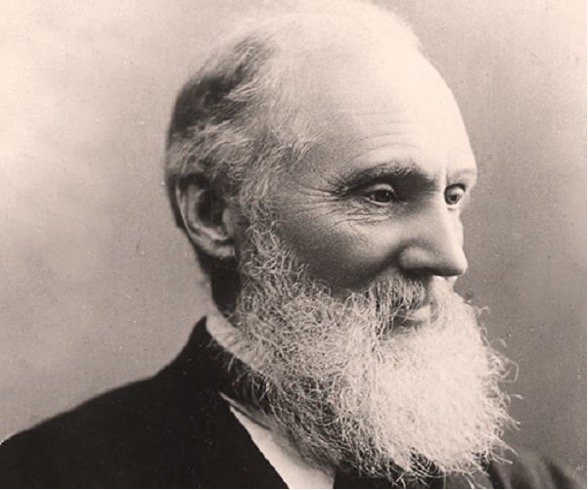
“Students find what we teach them is relevant to a variety of topics and is applicable in many ways. We teach these core skills on how to be a curious person and to be successful at being curious. I cannot imagine a better experience than to discover you are limitless.
The Innovation Minor illuminates that you can do a lot more than you think you can. It is a fantastic platform for discovering how much strength you have hidden underneath. It is a course that will serve you no matter what you take and where you go.
Whether you are a doctor, engineer, or social worker, we all have clever ideas and know how to act when we discover them, and the Innovation Minor teaches you that. It teaches you how to see them and how to react to them. It does not matter what you do in life and where those things come from, if your eyes are open to it, the opportunity comes.”
When you are not working, what are you doing?
Kenneth loves meeting and talking to new people, which is why he initially obtained an amateur radio license. He has a small radio he can take apart and store on the back of his bike. He then reassembles the radio at a campsite, and he can talk to people from around the world in some of the most remote places in Ontario.
When Kenneth isn’t moulding the minds of some of our brilliant Innovation Minor students, he is usually taking up new hobbies like riding his motorcycle, learning new skills, hanging out with his dogs and wife or motto camping.
“You only go around once, so you might as well pack it full of whatever you can.”
